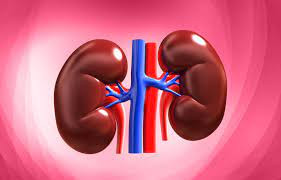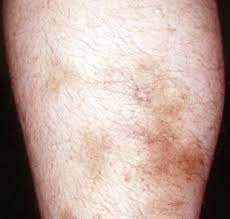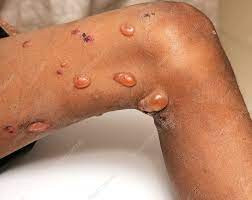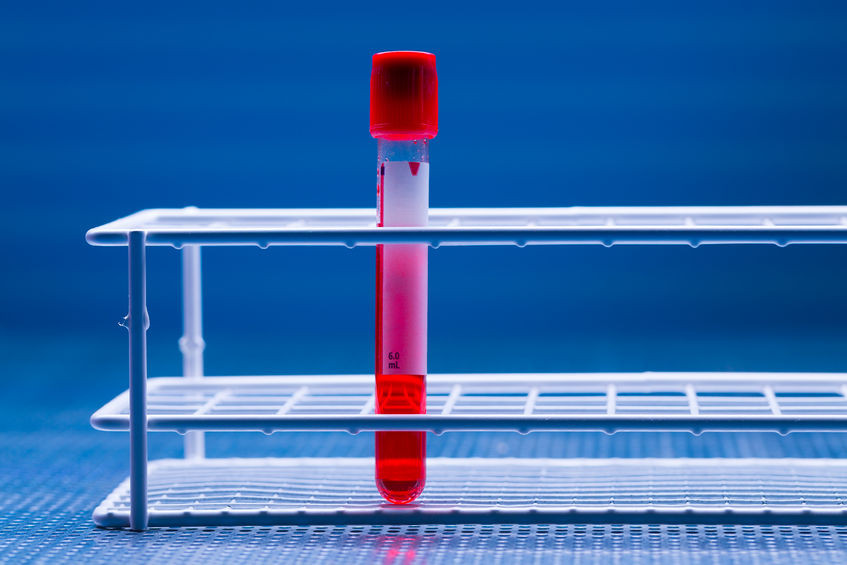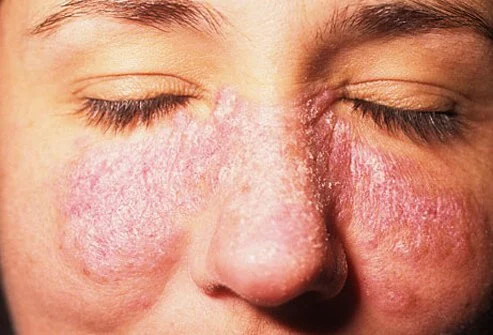Definisi
Glomerulonefritis membranoproliferatif (GNMP) adalah sebuah penyakit ginjal yang ditandai dengan adanya peradangan dan perubahan pada glomerulus, yaitu bagian ginjal yang berfungsi untuk menyaring cairan dan zat buangan dari darah dan membentuk urin.
Banyak penyakit yang dapat mempengaruhi fungsi ginjal dengan menyerang dan merusak glomerulus. Kondisi yang melibatkan glomerulus disebut penyakit glomerular. Penyakit glomerular ada beberapa dengan penyebab yang berbeda. GNMP merupakan salah satu penyakit glomerular.
Terdapat tiga bentuk GNMP berdasarkan mekanisme kerusakan ginjal dan bagian glomerulus yang rusak. Masing-masing tipe dibagi menjadi primer dan sekunder. Tiga bentuk tersebut yaitu GNMP tipe I, II, dan III. Kebanyakan orang menderita GNMP tipe I (sekitar 80% dari seluruh kasus GNMP merupakan tipe I). GNMP tipe II dan III lebih jarang namun lebih sering menyebabkan penyakit yang lebih parah.
Penyebab
GNMP merupakan salah satu bentuk glomerulonefritis yang disebabkan oleh respon imun yang abnormal, dimana sistem imun mulai menyerang sel sehat di ginjal sehingga merusak glomerulus. Sistem imun memproduksi protein yang disebut dengan antibodi untuk menyerang zat di dalam tubuh yang dianggap berbahaya, yang disebut dengan antigen. Antigen yang bergabung dengan antibodi disebut dengan kompleks imun. Pada GNMP, kompleks imun ini membentuk deposit yang menumpuk pada satu bagian ginjal yang disebut membran basal glomerulus. Membran ini membantu menyaring zat buangan dan kelebihan cairan dari darah.
Kerusakan membran ini akan mempengaruhi kemampuan ginjal untuk membentuk urin dengan normal. Hal ini juga dapat menyebabkan darah dan protein bocor ke urin. Jika protein yang bocor ke urin cukup banyak, cairan dapat keluar dari pembuluh darah ke jaringan tubuh sehingga menyebabkan bengkak. Zat buangan nitrogen juga dapat menumpuk di darah (azotemia).
GNMP tipe I yang primer (tidak diketahui penyebabnya) lebih jarang. Tipe I paling sering terjadi akibat adanya penyebab lain seperti:
- Penyakit autoimun (lupus, scleroderma, sindrom Sjörgen, sarkoidosis), krioglobulinemia campuran
- Kanker (leukemia limfositik kronis, limfoma, melanoma)
- Infeksi kronis (hepatitis B, hepatitis C, endokarditis bakterialis, infeksi HIV, abses organ dalam, infeksi shunt jantung, malaria)
- Penyakit lain (lipodistrofi parsial, defisiensi C2 atau C3, sarcoidosis, mikroangiopati trombotik)
Faktor Risiko
GNMP dapat terjadi pada semua orang dengan usia berapapun, namun kondisi ini lebih sering timbul pada masa kanak-kanak daripada dewasa. Kejadian GNMP diperkirakan pada 2-3 setiap 1.000.000 orang.
GNMP primer terutama menyerang anak dan dewasa muda berusia 8 sampai 30 tahun, sedangkan GNMP sekunder cenderung menyerang orang dewasa di atas 30 tahun.
Pria dan wanita memiliki rasio yang sama.
Adanya riwayat keluarga dengan GNMP meningkatkan risiko seseorang untuk terkena penyakit yang sama
Gejala
Gejala GNMP meliputi:
- Darah pada urin. Penyakit glomerular dapat menyebabkan kebocoran darah ke urin. Urin dapat terlihat merah muda atau cokelat terang akibat bercampur darah
- Perubahan status mental seperti penurunan kesadaran dan atau konsentrasi
- Urin keruh atau berbusa. Penyakit glomerular dapat menyebabkan kebocoran protein ke urin. Urin dapat menjadi berbusa akibat adanya protein
- Urin gelap (berwarna seperti cola atau teh)
- Penurunan volume urin
- Bengkak pada bagian tubuh. Penyakit glomerular dapat menyebabkan penumpukan cairan di dalam tubuh. Kelebihan cairan ini dapat menyebabkan bengkak pada bagian tubuh seperti tangan, pergelangan kaki, dan di sekitar mata.
- Sindrom nefrotik. Sindrom ini merupakan kumpulan gejala yang terjadi bersamaan dan mempengaruhi ginjal. Gejala tersebut meliputi:
- Bengkak pada bagian tubuh seperti tungkai, pergelangan kaki, atau sekitar mata
- Adanya protein pada urin dalam jumlah yang banyak
- Kekurangan protein pada darah
- Peningkatan kadar lemak pada darah (kolesterol tinggi)
- Tekanan darah tinggi
Penderita GNMP tipe II lebih banyak menyebabkan kelainan mata yang dapat menyebabkan gangguan penglihatan.
Diagnosa
Untuk mendiagnosa suatu GNMP, dokter akan menanyakan mengenai gejala yang Anda rasakan dan melakukan pemeriksaan fisik. Dokter akan mencari adanya tanda penumpukan cairan pada tubuh seperti:
- Bengkak, seringnya pada tungkai
- Suara jantung dan paru yang abnormal yang didengarkan melalui stetoskop
- Tekanan darah tinggi
Untuk mengkonfirmasi diagnosis GNMP, dapat dilakukan pemeriksaan seperti:
- Pemeriksaan darah lengkap. Pemeriksaan darah ini akan menunjukkan kadar protein, kolesterol, dan zat buangan seperti BUN dan kreatinin dalam darah
- Pemeriksaan urin. Pemeriksaan urin akan membantu menemukan adanya protein dan darah pada urin
- Glomerular filtration rate (GFR). Pemeriksaan darah akan dilakukan untuk mengetahui seberapa baik kemampuan ginjal menyaring zat buangan dari tubuh
- Biopsy ginjal. Pemeriksaan ini merupakan yang paling baik untuk mengkonfirmasi adanya GNMP. Sebagian kecil dari ginjal akan diambil menggunakan jarum khusus dan diamati di bawah mikroskop. Lokasi deposit kompleks imun membantu membedakan antara ketiga tipe GNMP. Mengetahui jenis penyakit dapat membantu dokter untuk memilih terapi yang paling tepat, sehingga pemeriksaan ini sangat penting untuk dilakukan.
- Pemeriksaan genetik. Pemeriksaan ini dapat dilakukan untuk melihat apakah GNMP disebabkan oleh kelainan genetic yang diturunkan dari keluarga
- Pemeriksaan profil komplemen darah. Komplemen adalah produk dari system imun. Pemeriksaan ini dapat dilakukan untuk mendukung diagnosis dan menentukan tipe GNMP
- Pemeriksaan serologis. Peemriksaan ini mendeteksi antibodi yang yang ada pada penyakit sepertiupus, hepatitis B, dan hepatitis C. Tujuan pemeriksaan ini adalah untuk mencari penyebab dari GNMP tipe I sekunder.
Tata Laksana
Terapi dan pengobatan GNMP bergantung pada gejalanya. Tujuan terapi adalah untuk memperbaiki gejala, mencegah komplikasi, dan memperlambat perburukan penyakit. Sebelum rencana terapi dibuat, dokter akan mencoba mencari penyebab GNMP yang Anda alami. Jika GNMP tidak disebabkan oleh penyait lain, seperti hepatitis C, maka terapinya akan berbeda.
Terapi dengan obat-obatan dapat memperlambat perburukan penyakit dan emmbantu mengontrol gejala seperti tekanan darah tinggi, bocornya protein pada urin, dan bengkak. Dokter dapat meresepkan obat seperti:
- Obat penurun tekanan darah untuk mengontrol tekanan darah dan mengurangi kehilangan protein
- Dipyridamole
- Aspirin
- Diuretic
- Steroid dan obat penekan system imun, seperti siklosfosfamid. Obat-obatan ini digunakan untuk menekan aktivitas system imun agar tidak lagi menyeran glomruli
Anda perlu untuk mengganti pola diet dengan membatasi konsumsi natrium, cairan, atau protein untuk membantu mengontrol tekanan darah, pembengkakan, dan penumpukan zat buangan di darah.
Dialisis (cuci darah) atau transplantasi ginjal mungkin akan dibutuhkan jika telah terjadi gagal ginjal.
Komplikasi
GNMP seringnya mengalami perburukan secara perlahan dan akhirnya menyebabkan gagal ginjal. Setengah dari penderita GNMP akan menderita gagal ginjal kronis (jangka panjang) dalam waktu 10 tahun. Hal ini lebih mungkin terjadi pada orang dengan kebocoran protein pada urin yang lebih tinggi.
Secara umum, komplikasi yang dapat terjadi adalah:
- Sindrom nefritik akut
- Gagal ginjal akut
- Penyakit ginjal kronis
Pencegahan
Mencegah infeksi seperti hepatitis atau mengontrol penyakit seperti lupus dapat membantu mencegah GNMP.
Kapan Harus ke Dokter
Anda disarankan untuk berkonsultasi ke dokter jika:
- Anda memiliki gejala GNMP
- Gejala yang Anda alami tidak kunjung membaik atau malah memburuk
- Anda mengalami gejala baru, termasuk berkurangnya volume urin
Mau tahu informasi seputar penyakit lainnya? Cek di sini, ya!
- dr Anita Larasati Priyono
Encyclopedia, M., & glomerulonephritis, M. (2022). Membranoproliferative glomerulonephritis: MedlinePlus Medical Encyclopedia. Retrieved 4 July 2022, from https://medlineplus.gov/ency/article/000475.htm
Membranoproliferative Glomerulonephritis. (2022). Retrieved 4 July 2022, from https://www.kidney.org/atoz/content/membranoproliferative-glomerulonephritis
Membranoproliferative Glomerulonephritis - Genitourinary Disorders - MSD Manual Professional Edition. (2022). Retrieved 4 July 2022, from https://www.msdmanuals.com/professional/genitourinary-disorders/glomerular-disorders/membranoproliferative-glomerulonephritis

